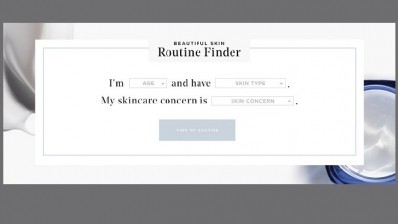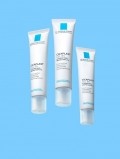REACH for cosmetics: Focus on the last registration deadline by COSMED

On May 31, 2018, the registration of every substance manufactured or imported in European Union in quantities of more than one tonne per year will have to be accomplished.
As the deadline is clearly approaching, COSMED, the professional association of the cosmetic field in France, summarizes the practical aspects of REACH registration for cosmetic industry.
What are the goals of REACH regulation?
Ten years ago, REACH regulation No 1907/2006 (Registration, Evaluation, Autorisation and restriction of CHemicals) came into effect in all countries of European Union, in order to:
- improve health and environment protection
- have better knowledge of chemicals and improve risk management
- reduce animal testing
- encourage communication between manufacturers
Gradual implementation of REACH registration
REACH regulation planned 3 deadlines depending on the tonnage: the two former deadlines December 2010 for substances at more than 1000 tonnes, and June 2013 for substances between 100 and 1000 tonnes.
According to ECHA (European CHemical Agency), more than 70 000 dossiers, concerning between 25 000 and 50 000 substances, manufactured or imported, are expected.
Undeniably, the SMEs will be largely concerned by the last foreseen registration deadline and not strictly in the chemical field.
And what are the impacts for cosmetic industry?
A cosmetic is a mixture of several substances.
A company that manufactures or imports or uses or puts on the market a substance alone or in a mixture or in an article is concerned by REACH regulation. Thus, substances in cosmetics are affected and have to be in line with REACH provisions, especially with the obligation of registration.
The first step for a company is to list all the substances used and to assess its role towards each substance.
A company is considered as a manufacturer if it produces the substance (for example an active or a raw material…); this substance should be registered if it is produced at more than one tonne per year.
A company is considered as an importer if it imports the substance from countries located outside of the European Union. If the substance is imported at more than one tonne per year, then it should be registered. It is also possible that the supplier outside European Union has designated an only representative to register the raw materials supplied, and in this case, the company is not considered as an importer but as a downstream user.
A company is a downstream user if it uses substances from European Union. Then it is compulsory to check with the supplier or the manufacturer if this substance has been registered for cosmetic use or will be registered in 2018 or is exempted from registration.
An essential point to understand is that a company can have several roles hence several obligations: for example it can be a downstream user with regard to a substance and an importer with regard with another.
And what happens if I import cosmetic products from outside European Union?
If this product is imported from outside the European Union, the substances constituting the product can be subject to REACH obligation.
The importer have to know and to check the exact composition of the cosmetics and add up the tonnage for each substance imported per year. If the quantity imported by substance is higher than one tonne per year, the substance (if it is not subject to an exemption) has to be registered by the importer or by the supplier.
Are natural substances exempted from REACH registration?
There is some specificity for natural substances, which can be exempted from registration but it is not automatic. To benefit from an exemption, natural substances have to meet the conditions written in annexes IV and V of REACH regulation.
For instance, essential oils, even if they are seen as natural, have to be registered.
As a conclusion, a key point to remember is that the first thing to do is to calculate the tonnage of the concerned substance. If this substance is manufactured or imported at less than one tonne per year, it is exempted from registration.
And for now, ECHA would not plan to lower this threshold of one tonne.
Act now
The deadline of May 2018 may seem distant, but it is essential to begin to investigate the substances used in case of you have an obligation to register. The process can be long, complex and expensive.
Besides, COSMED reminds that if the importer or manufacturer does not have a valid pre-registration for the substance after 31 May 2017 (one year before the deadline), he will need to submit to ECHA the registration dossier immediately. The manufacturing or importing or supplying of the substance should be stopped as long as the dossier is not submitted.
To help SMEs, ECHA has set up, in collaboration with professional associations, simplified technical guidance and dedicated web pages.
COSMED counts 725 SMEs members. It is an industry stakeholder in the European Commission for the development of cosmetic regulation, as well as in national and international standardization bodies.
Its contributions and regulatory and scientific views are internationally recognized. Furthermore, COSMED provide a regulatory monitoring to institutions and enterprises.




















